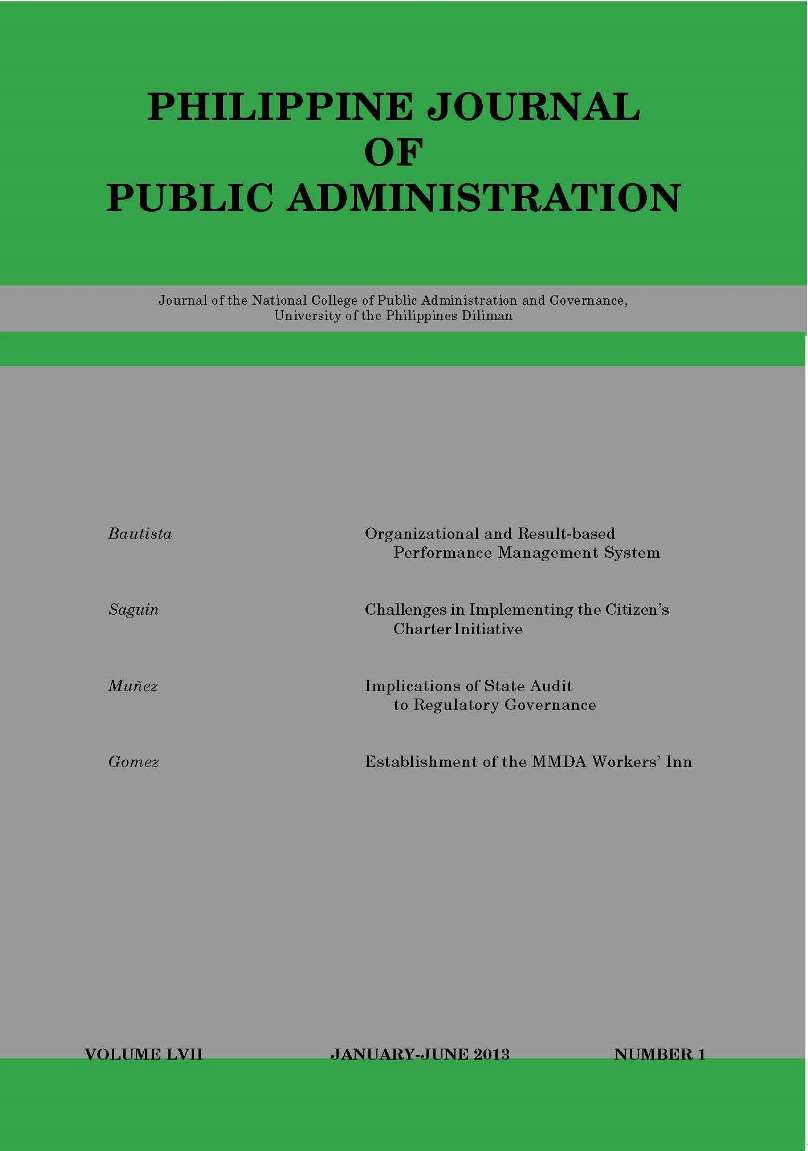Refuge and Solicitude of the Mater-Polis: An Early Assessment of the Establishment of the MMDA Workers’ Inn
Abstract
Since its inauguration in May 2007, the Metropolitan Manila Development Authority (MMDA) Workers’ Inn has served as a fairly successful metro governance experiment in shelter provision for blue-collar workers. Operated as a bed-bath-&-shop facility, the Gwapotel, as it was first nicknamed by its proponents, has come to serve as refuge for the laboring underclass, and occasionally, the rejects of urban society—thus drawing the MMDA into the role of intermediary between a diverse public of resource-challenged or distressed individuals, and a wider administrative network that is supposed to provide frontline social services, yet which has come to rely on MMDA’s growing capacity to handle such problems. The research frames the situation using concepts of institutional coping vis-à-vis the patterns of informality, behavior, and social capital replacement that metro government faces. The research arrives at the tentative conclusion that MMDA’s administrative innovation has become a unique but replicable magnet in urban space that inadvertently rises to the position of a dominant social safety-net provider for its vicinity in the metropolis. This is a growing role not initially targeted by MMDA, but one which has become a solution that matches unaddressed needs of the population.



